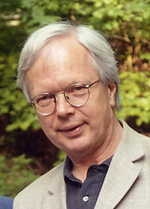Nicolaas Adrianus Rupke, Date of Birth, Place of Birth
TweetNicolaas Adrianus Rupke
Dutch historian
 Date of Birth: 22-Jan-1944
Date of Birth: 22-Jan-1944
 Place of Birth: Rotterdam, South Holland, Netherlands
Place of Birth: Rotterdam, South Holland, Netherlands
Profession: geologist
Nationality: Kingdom of the Netherlands
Zodiac Sign: Aquarius 
About Nicolaas Adrianus Rupke
- Nicolaas Adrianus Rupke (born 22 January 1944 in Rotterdam) is a Dutch historian of science, who began his academic career as a marine geologist.He studied biology and geology at the university of Groningen and geology and the history of science at Princeton and Oxford.
- Early in his studies, Rupke was a Christian and proponent of Flood geology, but later came to reject this position.
- When in 1977 he was elected to a Wolfson College, Oxford research position in the history of science, Rupke made this subject his full-time occupation.
- A series of similar international research posts followed, until in 1993 he took up a professorship at Göttingen University to teach the history of science and medicine.
- In 2009, Rupke was awarded a Lower Saxony research chair.
- In 2012, he took up an endowed professorship at Washington and Lee University in Lexington, Virginia, USA. Rupke is known for his studies of late-modern biology, geology and science & religion.
- With an interest in the biographical approach, he restored to their contemporary prominence several nineteenth-century scientists, most important among them Richard Owen who well before the appearance of The Origin of Species developed a naturalistic theory of evolution, albeit a non-Darwinian one.Studies of Alexander von Humboldt came next, in which Rupke developed what he terms the metabiographical approach by exploring how a famous life – in this case Humboldt's – may be multiply retold and reconstructed as part of different belief systems and memory cultures.Rupke is a fellow of Germany's National Academy of Sciences Leopoldina and of the Göttingen Academy of Sciences.
Read more at Wikipedia
See Also
- Famous People's Birthdays on 22 January, Netherlands
- Famous People's Birthdays in January, Netherlands
- Famous People's Birthdays on 22 January, Kingdom of the Netherlands
- Famous People's Birthdays in January, Kingdom of the Netherlands
- Famous geologist's Birthdays on 22 January, Netherlands
- Famous geologist's Birthdays in January, Netherlands
- Famous geologist's Birthdays on 22 January, Kingdom of the Netherlands
- Famous geologist's Birthdays in January, Kingdom of the Netherlands

